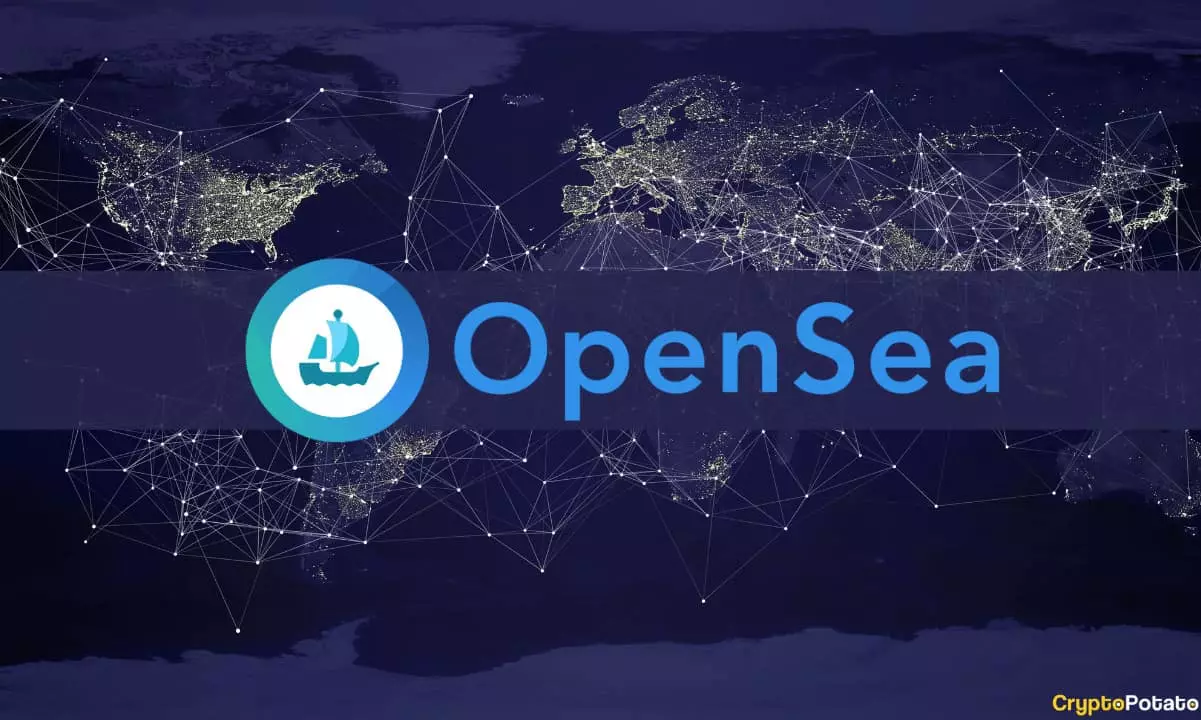OpenSea, once hailed as the leading platform for non-fungible tokens (NFTs), has found itself in troubled waters. This downturn is not just a fleeting moment; it appears symptomatic of broader issues within the NFT ecosystem. As engagement plummets and competition intensifies, the once-dominant marketplace is struggling to maintain its foothold.
A concerning trend for OpenSea has been the exodus of key executives. Four high-ranking officials have departed in recent months, including prominent roles such as the Chief Operating Officer and the head of business development. These departures are not mere coincidences but indicative of deeper issues within the company and the market. Employees are increasingly seeking opportunities at more stable or innovative organizations, a clear signal of their diminishing confidence in OpenSea’s future. Notably, former leaders like Shiva Rajaraman have transitioned to well-regarded companies such as Uber, and their LinkedIn profiles reflect a sense of optimism not seen in their time at OpenSea.
The context in which OpenSea operates has drastically changed. Initially riding the wave of popularity during the NFT boom of 2021, the platform now faces a stark reality: the NFT market is no longer the buzzworthy sector it once was. Market engagement has sharply declined, attributed to various factors including buyer fatigue and the burst of the speculative bubble that characterized earlier trading sessions. Compounding these challenges, alternative marketplaces such as Blur and Magic Eden have emerged, offering compelling features and lower transaction fees, effectively stealing the thunder from OpenSea. These competitors have galvanized a growing user base, highlighting the urgent need for OpenSea to innovate and adapt.
With decreasing engagement comes a natural decline in revenue. The dwindling transaction volume directly affects OpenSea’s bottom line, prompting concerns about its financial sustainability. The company cannot afford to rely on its past successes; instead, it must explore new revenue streams or risk falling further behind. This pressure raises questions about its strategic direction and operational efficiency in an increasingly complex and competitive market.
Adding to OpenSea’s woes is the scrutiny from regulatory bodies. The investigation by the Securities and Exchange Commission (SEC) into whether NFTs qualify as unregistered securities casts a significant shadow over the platform. This litigation can create an atmosphere of uncertainty, potentially alienating both creators and buyers who prefer the security of working within clear legal frameworks. Increased regulatory interventions could hinder OpenSea’s operational strategies, making adaptation more challenging.
The situation surrounding OpenSea serves as a cautionary tale for businesses navigating the ever-evolving world of NFTs. With executive departures, increasing competition, and looming regulatory challenges all contributing to its downfall, the future of OpenSea remains uncertain. Whether it can pivot and reclaim its dominance in this crowded landscape is yet to be seen, but stakeholders will be closely monitoring the marketplace’s next moves.

